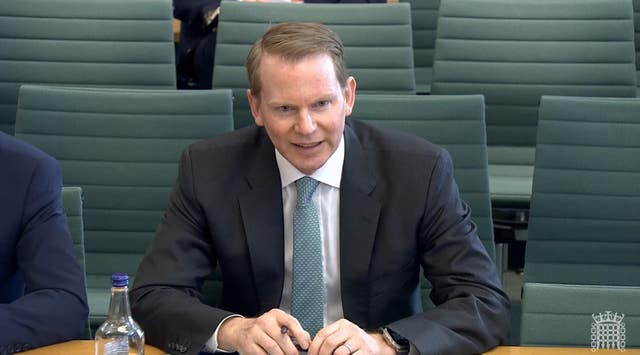NatWest boss says AI is ‘addition’ to human jobs rather than replacement
Chief executive Paul Thwaite told MPs: “We don’t see a direct link between deploying technology and removal of jobs.”

The head of NatWest has said he sees no “direct link” between artificial intelligence and the loss of human jobs at the bank.
Chief executive Paul Thwaite told MPs on Tuesday that he thinks AI can “improve the productivity of the economy” and that NatWest is deploying the technology across the bank.
NatWest is using generative AI to “make colleagues more efficient”, he said, citing jobs like software engineers and relationship managers.
Scores of companies, mainly in the tech sector, have already announced rounds of job cuts which are thought to be linked to the growing use of AI.
Microsoft said it would lay off about 6,000 workers earlier in May, at the same time as it invests heavily in AI and uses it more for jobs such as software development.
A World Economic Forum survey showed earlier this year that 41% of employers intent to downsize their workforce as the technology automates tasks.
Mr Thwaite, who employs more than 60,000 people at NatWest, said: “We don’t see a direct link between deploying technology and removal of jobs.
“What I would say is the profile of the workforce is changing a lot.
“We’re now recruiting people who are specialists in AI, data scientists, digital experts, that’s obviously a different profile of staff from which the bank was recruiting 15, 16 years ago.
“So really it’s an addition to staff rather than a replacement.”
Mr Thwaite was speaking to the cross-party Treasury Committee of MPs, along with bosses from Barclays, Lloyds and HSBC.
Charlie Nunn, the chief executive of Lloyds, said AI could give customers “more personalised advice” for banking services.
He said this is currently always done with a “human in the loop”.
Mr Nunn was separately pressed on Lloyds’ record over the car finance mis-selling scandal, which has so far seen the bank set aside more than £1.1 billion in case of a possible fallout.
Mr told MPs: “At this stage we don’t have evidence of harm.
“That’s not one of the things that’s been focused on, or in fact that we’ve broken the regulation retrospectively.
“If those things were found to be true of course we’d then lean in fully to try to identify the customers that did experience harm as defined by the FCA (Financial Conduct Authority), and then support a remediation programme.”

Lloyds is at the centre of a looming crisis facing the motor finance industry, with major lenders in the sector on the hook for potentially billions of pounds’ worth of compensation for motor finance deals with hidden commission payments.
The Court of Appeal in London ruled last October that it was unlawful for car dealers to receive commission on motor finance from lenders without a customer’s informed consent.
The court decision opened the door for a potential fresh wave of complaints from consumers who think they may have been mis-sold car finance in previous years.
When it was put to Mr Nunn by MPs that constituents felt they had been “duped” on car finance deals, he said: “The specifics are in the individual cases.”
He added: “When we look at the individual cases… it’s looking at that combination of factors that determines whether a customer actually got the right package or the right deal or whether there were harm.
“And as I said at this stage we haven’t had evidence of harm although if it were identified of course we would lean into it.”





